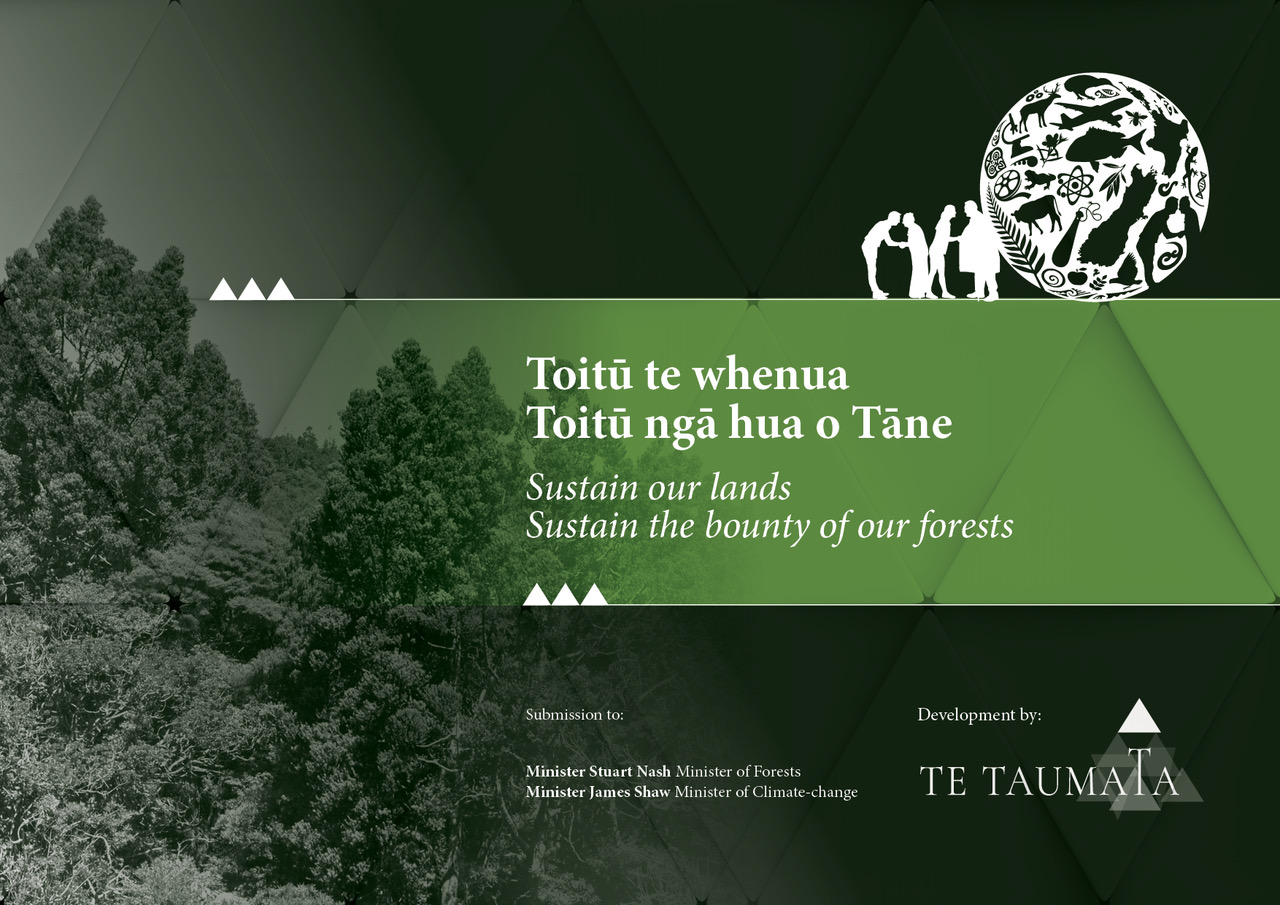On behalf of Māori forestry landowners, Te Taumata has voiced our concerns about the Government’s consultation process regarding the Emissions Trading Scheme (ETS) review and the inclusion of exotics in the permanent category of the scheme.
We have today called for Climate Change Minister, James Shaw, to meet with Te Taumata kanohi ki te kanohi to discuss and agree on the detail regarding the next stages of the ETS review and Climate-change Policy Review.

This follows what we consider to be an attempt by Government officials to ‘tick-box’ consultation with Māori, by requiring us to sign an NDA to attend a ‘drop-in session’ about the ETS review, and giving us less than two working days to provide feedback.
While Te Taumata welcomed Government’s commitment to meeting the Crown’s obligations under Te Tiriti, we are seeking a fair opportunity to provide quality input into the proposed review, alongside key Māori forestry landowners and Iwi representatives.

We have significant concerns about the economic impact of the proposals in the scoping document on the Māori economy, Māori, and the national economy.
Unfortunately, our experience with Government and officials over the past two years regarding forestry has been driven by what appears to be a political agenda to exclude exotics from this category.
This has prompted the development of a Te Taumata report reviewing the stated opposition to exotics in the Permanent Category of the ETS, with an evidence-based lens and feedback from a te ao Māori view.

Some of the report findings include:
- Inclusion of exotics in the Permanent Category of the ETS is a necessary and complementary land use option, and opens the pathway for Māori to sustainably develop our land.
- There is no substantive evidence that the risks of exotics in the Permanent Category equal the risks that have been attributed by officials.
- An industry Code of Practice will address the concerns of Government and allow for the industry to self-regulate with the support of our Treaty partner, the Crown.
- The Crown would benefit from working in partnership with Māori in the Forestry Value Chain.
Our recommendations are that:
- Exotic forest species must remain a part of the permanent category in the ETS.
- The ETS continues to recognise the carbon sequestration value of forestry within the ETS.
- The Minister accepts our industry-led Code of Practice as the solution without the need to take further regulatory action.
- The Minister agrees to work proactively, collaboratively, and in partnership, empowering Ngā Pou a Tāne.
- The Minister makes officials aware that misrepresentation of the forestry industry is unacceptable.
We will continue to keep you updated as we progress this important kaupapa and mahi.


